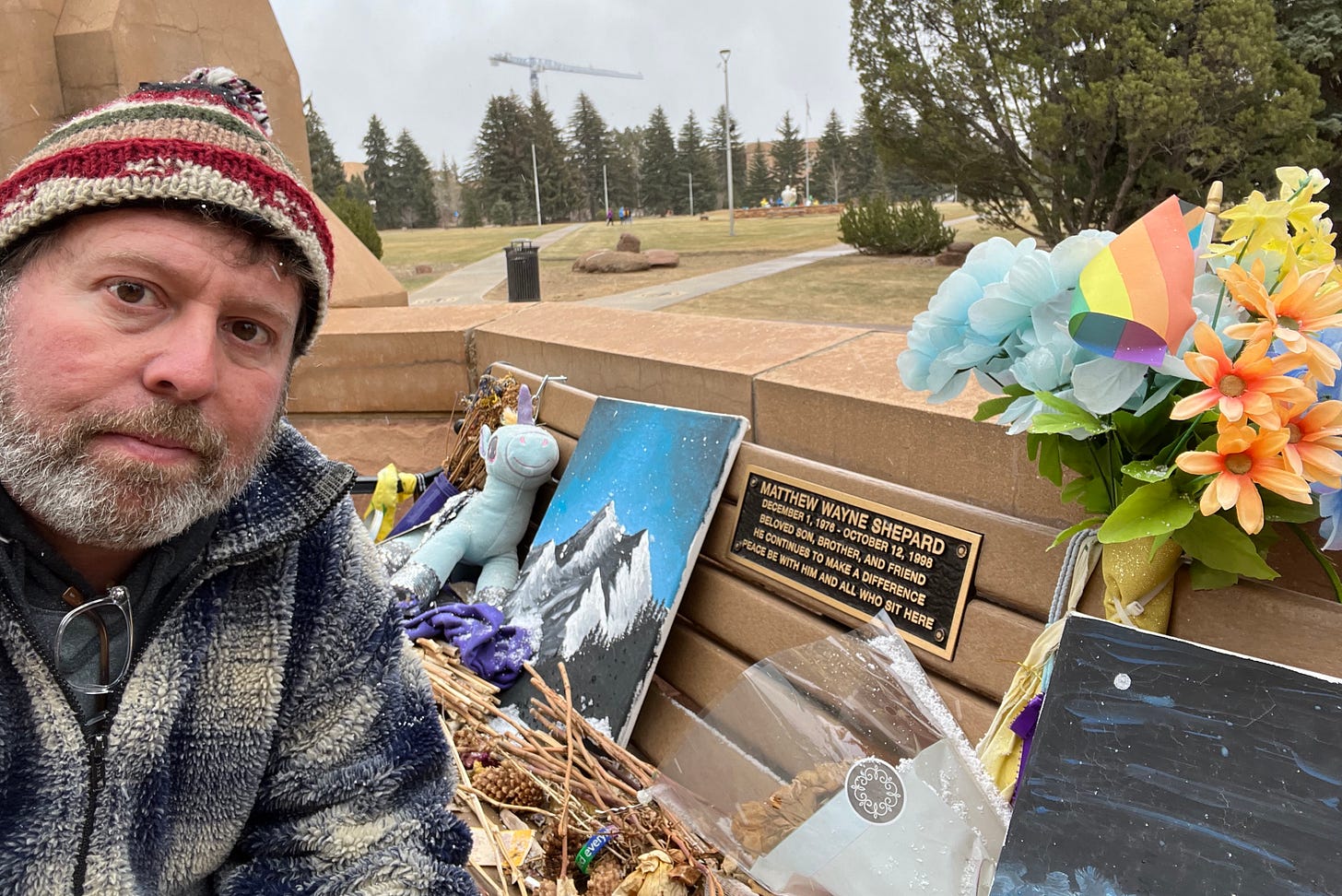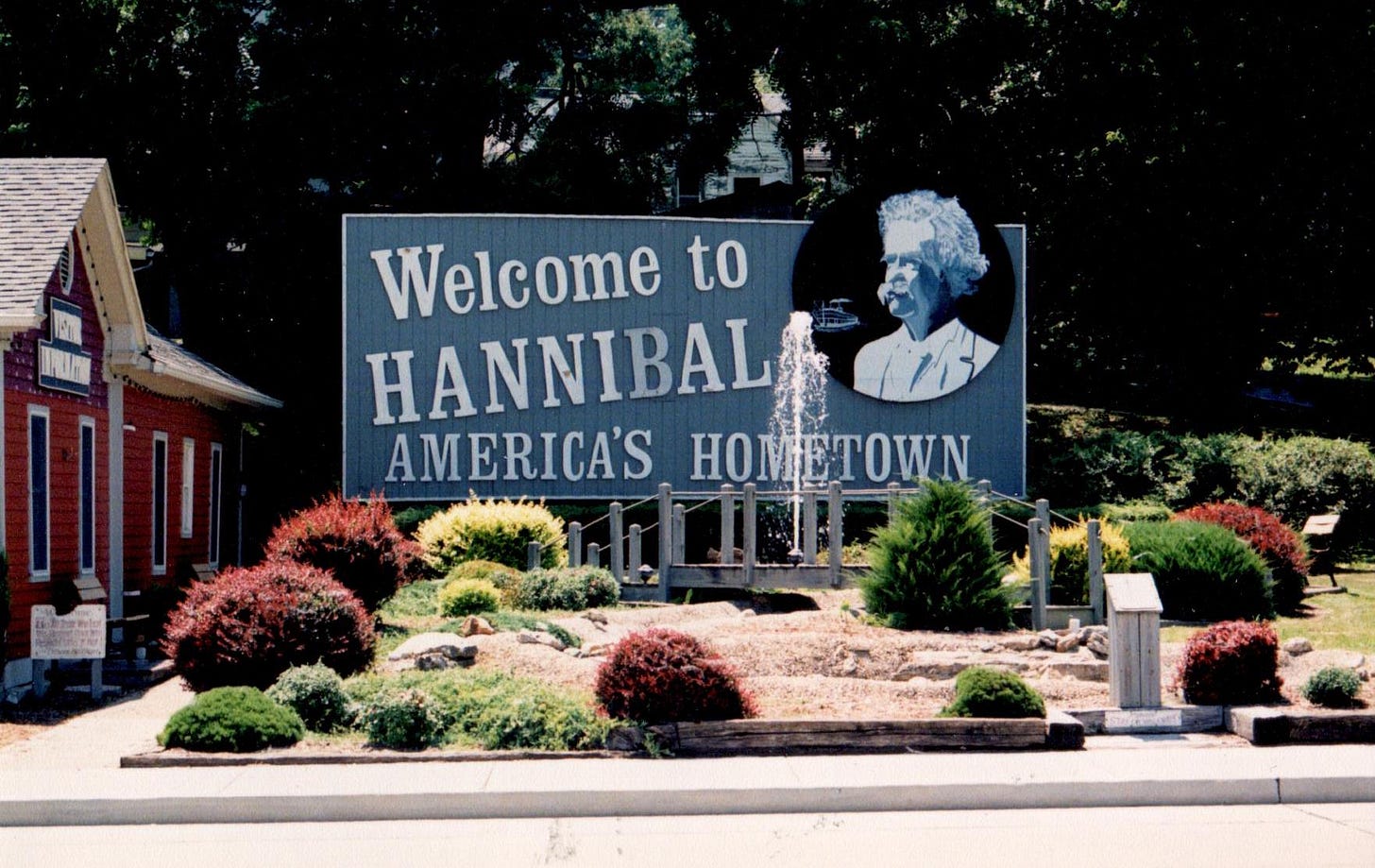Declaration of (Inter)dependence
A cross-country look at the patchwork pursuit of justice, identity, and belonging
July 4, 2003. Destination: Edmond, Oklahoma
A few major media outlets had dubbed it one of the top 10 places to celebrate Independence Day, with the parade ranked as the third largest in the country.
My travel partner at the time had a friend living there, so we planned a stop. And while I didn’t expect to find fireworks-worthy reflections in the middle of the country, I did.
There’s a powerful energy that arises when people come together, not because they all look the same or share the same past, but because they believe in the same idea: that freedom matters.

A Brief History of Independence (and Road Trips)
Today, wherever you are in the U.S., someone nearby is likely firing up a grill, waving a flag, or tossing candy from a float. The celebration endures, even if the meaning keeps evolving.
In 1776, the Continental Congress adopted the Declaration of Independence. Five years later, Massachusetts made the Fourth of July a holiday.
Two days before the official declaration, Richard Henry Lee introduced the resolution for independence. Jefferson wrote the draft, participated in a revolution, and then hit the road.
He traveled widely, journaling with flair. In 1787, writing from Paris, he told his nephew: “Traveling makes men wiser, but less happy.”
His theory? Exposure to the richness of the world makes it harder to settle for what you left behind.
My suggestion to Jefferson? If travel makes you wiser but less content at home… maybe you just need to travel more.
The Real Fabric of Freedom
The more time I spent in new zip codes, the more I saw the tapestry that is America.
From Native Nation powwows to Puerto Rican parades, crab boils to halal and kosher cookouts, our freedom lives in our flavors, languages, and layered stories.
It’s not just fireworks and anthems, it’s elders passing down recipes, drummers keeping ancestral rhythms alive, kids dancing in traditional outfits, and immigrants grilling side by side, blending histories on a single plate.
The deeper I traveled, the more I realized: independence isn’t uniform. It’s communal, cultural, and constantly being redefined.
Even in the smallest, most seemingly uniform towns, most people had origin stories that stretched far beyond their porch. There are lots of quiet reminders that movement and migration are embedded in who we are.
In his letter, Jefferson also said, “Be good, be learned, and be industrious, and you will not want the aid of traveling to render you precious to your country.”
I’d offer the inverse: there is everything to be gained from traveling, especially if you're willing to unlearn what you thought you knew.
Freedom, Footsteps, and Fractures.
Freedom doesn’t wear just one face or fly just one flag. Even Old Glory has been through 27 iterations.
Walking across the Edmund Pettus Bridge in Selma, I felt the weight of footsteps that once demanded America live up to its promises.
At the Little Bighorn Battlefield, I stood in a silence that spoke volumes about broken treaties and buried truths.
Out west, I passed through towns where Japanese Americans were once detained behind barbed wire, ghosts of patriotism turned cruelly inward.
In Little Havana, over plantains and café Cubano, I listened as locals told stories of exile and resilience and of building new lives with old roots.
And then there was the day I climbed into the crown of the Statue of Liberty and looked out over the Hudson. Not just as a tourist, but as a witness. That view doesn’t belong only to the victorious. It belongs to everyone who has ever chased liberty, questioned it, or tried to make it more real.

24 Hours in Laramie.
In April 2023, I spent just 24 hours in Laramie, Wyoming. But it stuck with me.
I stopped at the Matthew Shepard memorial bench, a quiet stone tucked into the university campus, where even the wind seemed to pause in respect. Matthew’s story, brutal and senseless, became a catalyst for broader protections and overdue conversations around dignity and justice for LGBTQ+ communities.
Not far from there, I toured the Wyoming Territorial Prison. It once held outlaws, petty thieves, and folks imprisoned more by poverty than principle. Not exactly the Wild West villains we see on TV.
Later that day, I visited the Abraham Lincoln Memorial off I-80, where Honest Abe’s towering bronze gaze still watches over a country trying to live up to its better angels.
The contrasts hit hard. The myth of freedom, the cost of exclusion, the fragility of a nation still debating whose freedoms matter most.
And yet, downtown Laramie was alive with quiet change. Rainbow flags in windows. Black Lives Matter signs on storefronts. A multicultural food scene, including a vegan café, where tofu tacos are a thing and no one bats an eye.
Progress doesn’t always show up with fireworks. Sometimes it’s just the menu that changes.

Seeing People, Not Just Places.
The more I traveled, the more I learned how to see people.
That ability was honed across rest stops, diners, and doorsteps and shaped how I showed up in classrooms, offices, and executive spaces.
Whether I was teaching middle school science or facilitating a leadership retreat, my ability to connect authentically didn’t come from a workshop. It came from actual firsthand experiences.
From listening to a Navajo grandmother in Arizona who was forced to give up her native language.
To chatting with a fourth-generation rancher in Bozeman, wrestling with economic uncertainty.
To swapping stories with a Black business owner in Birmingham who was rebuilding after loss.
Insights acquired on the road helped me bridge gaps, not with buzzwords, but with curiosity and care.
When someone realizes you’ve been to their hometown, eaten their food, or simply taken the time to understand their reality, something shifts. That’s the bridge. The thing that lets trust walk across.
And whether you’re in a classroom or a boardroom, that connection creates a psychological safety which is the foundation for collaboration, creativity, and actual progress.
Travel doesn’t just make us wiser. It makes us more useful.
Hope Isn’t Naive—It’s Necessary.
America is still a work in progress. Some days, it feels like we’re building the plane while flying it.
But if travel has taught me anything, it’s that most people, regardless of zip code, want to be safe, seen, and connected.
I’ve shared meals with strangers who had every reason to give up on this country, but hadn’t.’
I’ve laughed with folks who didn’t vote like me, pray like me, or look like me, and yet we bonded over trail mix and a good overlook.
That’s the magic of the road.
It reveals the cracks in our system, sure, but also the ways people are filling them with art, activism, food trucks, and absurd amounts of optimism. And simple love for friends, family, and the desire for collective happiness.
The goal isn’t perfection. It’s participation.
And there may be no more patriotic act than getting to know your country, one conversation at a time.
Final Stop: Hannibal, Missouri.
One of the last destinations on that 2003 road trip was Hannibal, Mark Twain’s hometown.
I stood there thinking about all the places we’d just driven through, all the people we’d met, and how every mile had chipped away at some assumption I didn’t know I had.
Back in Edmond, I had watched one of the largest 4th of July parades in the country roll by. Flags flying, marching bands booming, veterans saluted. It was grand, proud, and unmistakably American.
But it was only by leaving places like Edmond, and landing in towns like Laramie, Selma, Window Rock, Little Havana, and Hannibal, that I began to understand the quieter truth: freedom is not just something you celebrate. It’s something you earn, expand, question, and share.
Twain once wrote, “Travel is fatal to prejudice, bigotry, and narrow-mindedness, and many of our people need it sorely on these accounts. Broad, wholesome, charitable views of men and things cannot be acquired by vegetating in one little corner of the earth all one's lifetime.”
He was right.
The road doesn’t just show you landscapes, it shows you lives.
Lives that complicate the narrative, expand your empathy, and remind you that freedom isn’t static. It’s relational.
It’s something we build together. One small act of curiosity, respect, or solidarity at a time.
If Jefferson wrestled with how travel disrupts comfort, Twain celebrated how it awakens conscience.
I’ll side with Twain.
Because if this country is still becoming, then the best way to love it might just be to keep moving through it with eyes open and heart engaged.
And those are Lessons That Travel.






I just read the first two LTT posts and can’t wait for the next one. I was not feeling festive this past July 4th but thankfully your wonderful writing was a balm for my soul. It put into words — and perspective — the complexity of our country and many cultures, and lifted my spirits. And even nudged this homebody into considering taking a (road?) trip sooner rather than later…
Mike, you've written your best post yet...BRAVO my friend. I especially enjoyed your thought-provoking short paragraph about one way to build a bridge between our polarized populace: "When someone realizes you’ve been to their hometown, eaten their food, or simply taken the time to understand their reality, something shifts. That’s the bridge. The thing that lets trust walk across." Brilliant...truly!